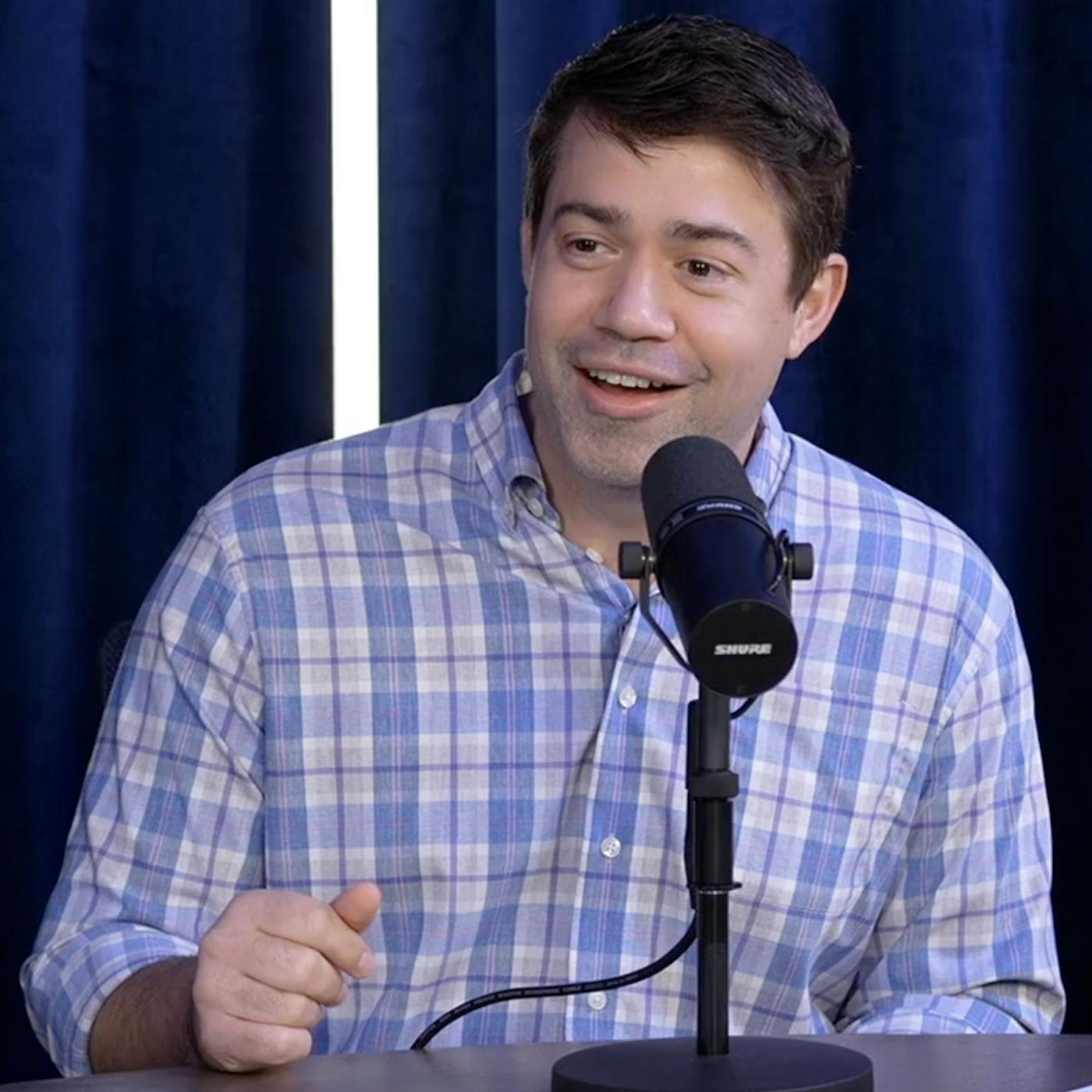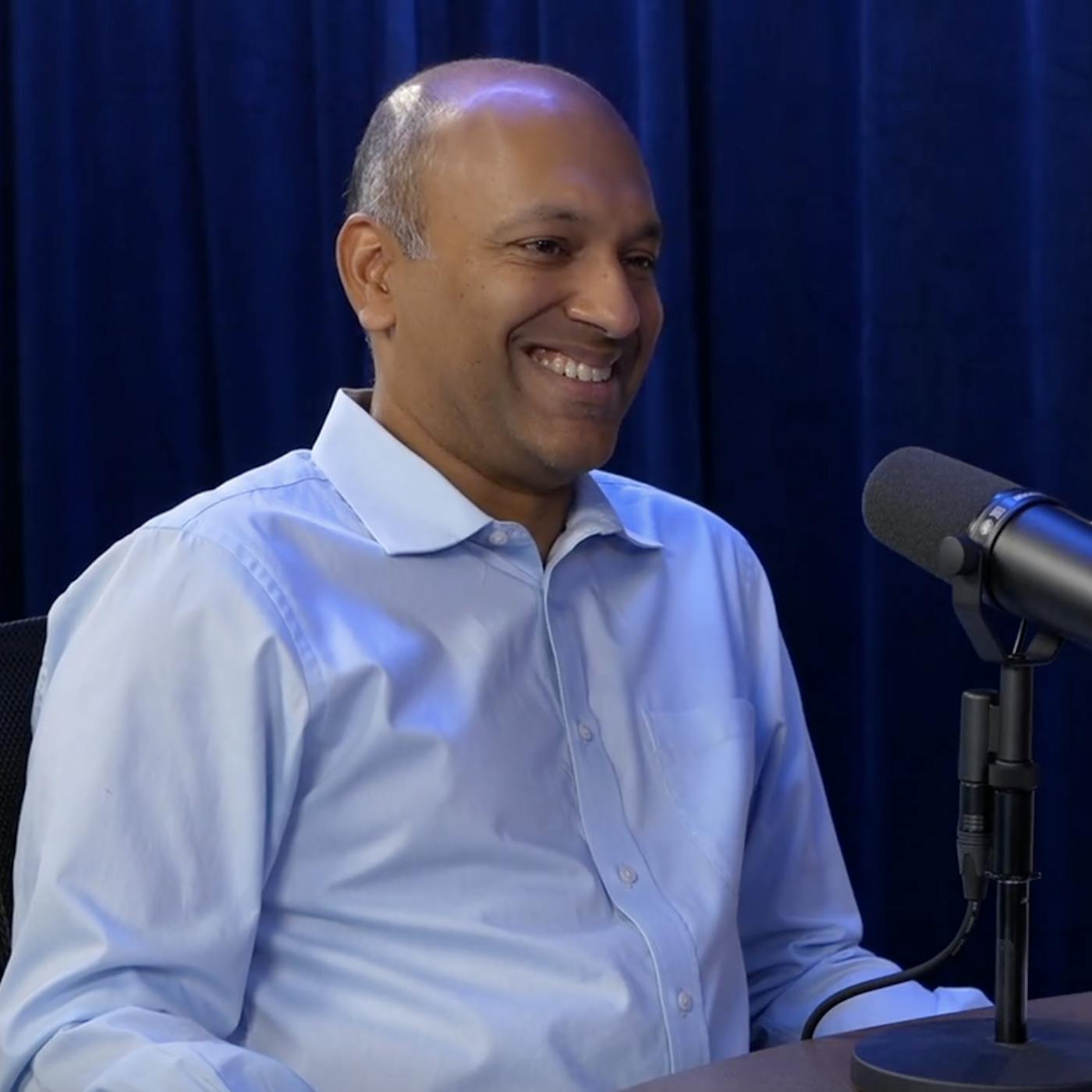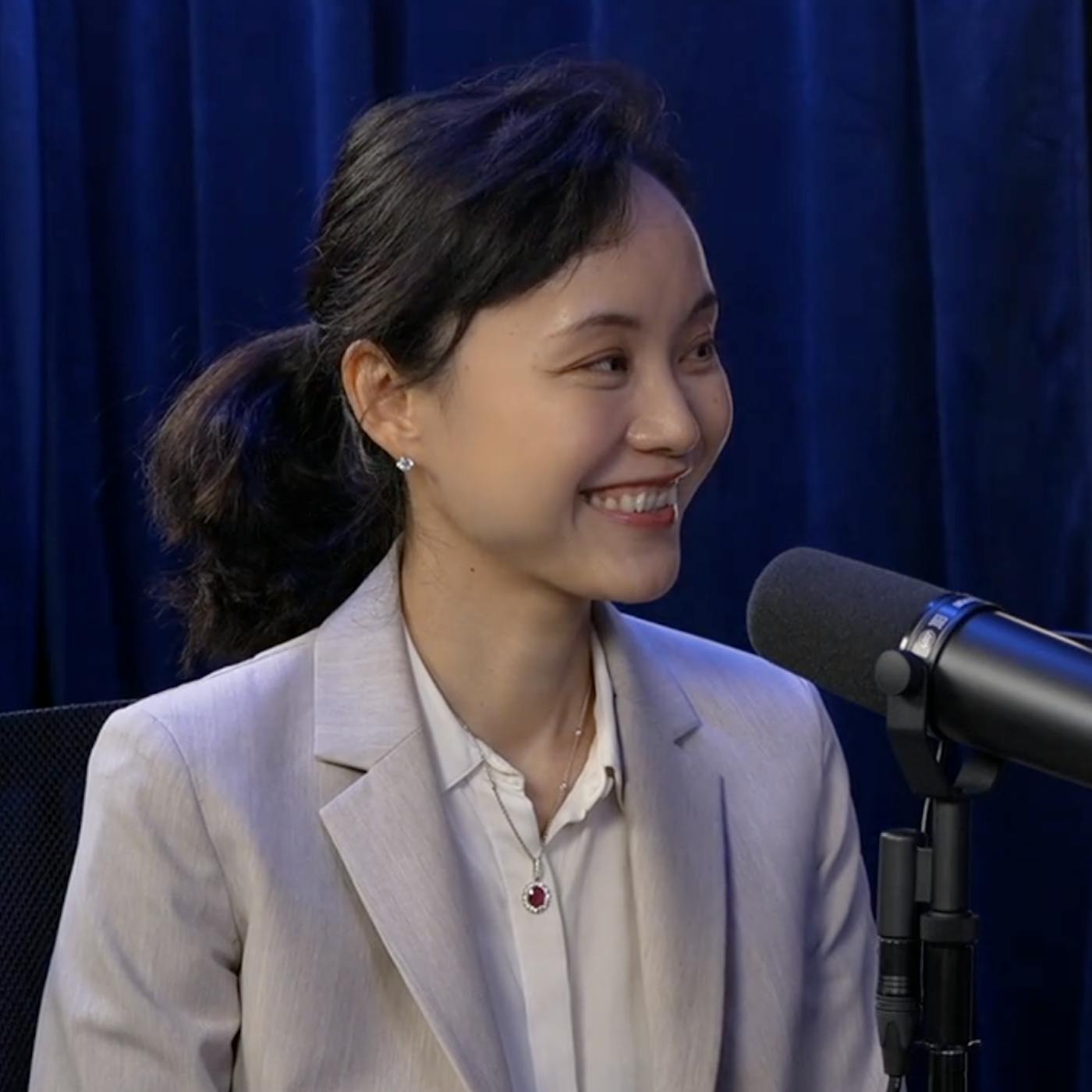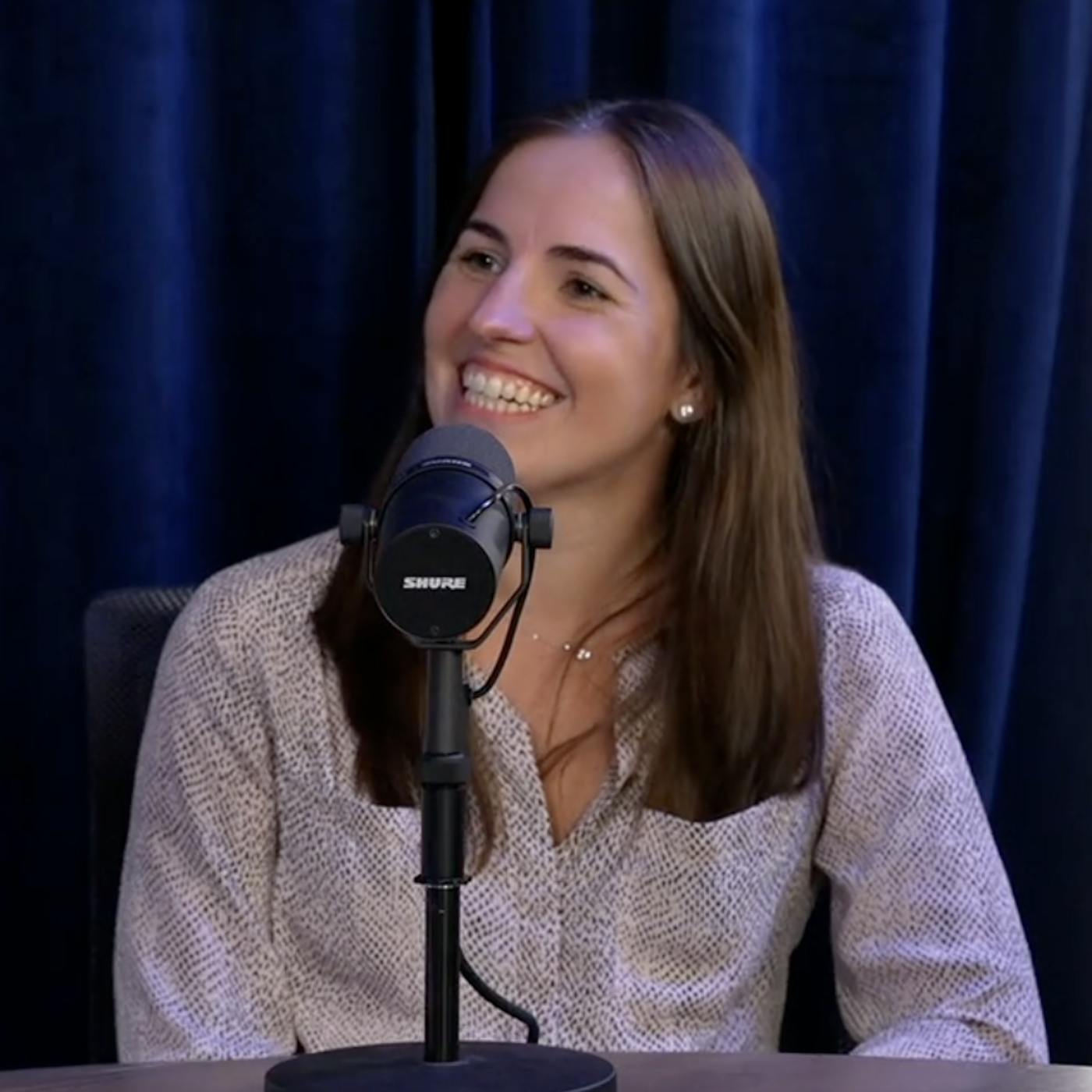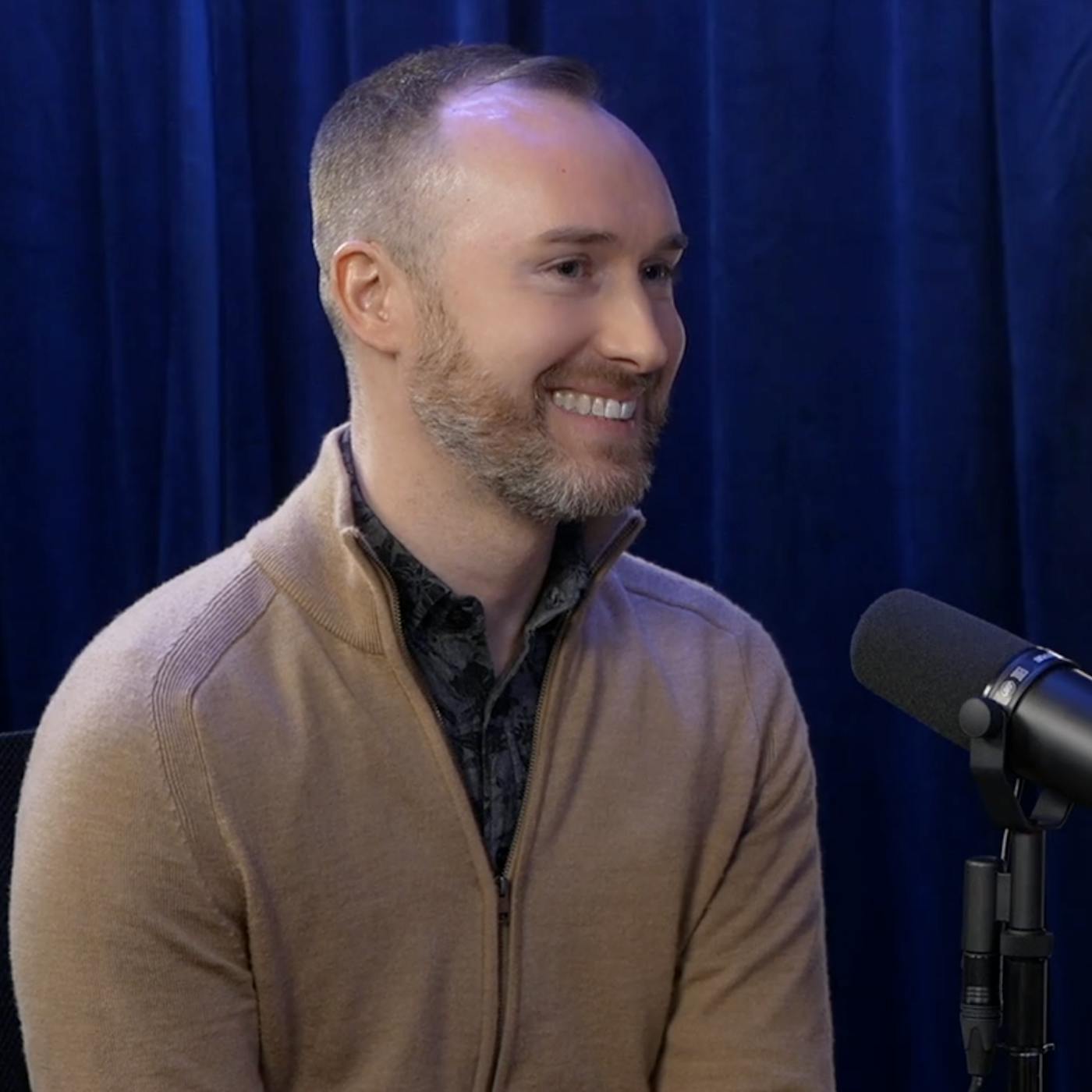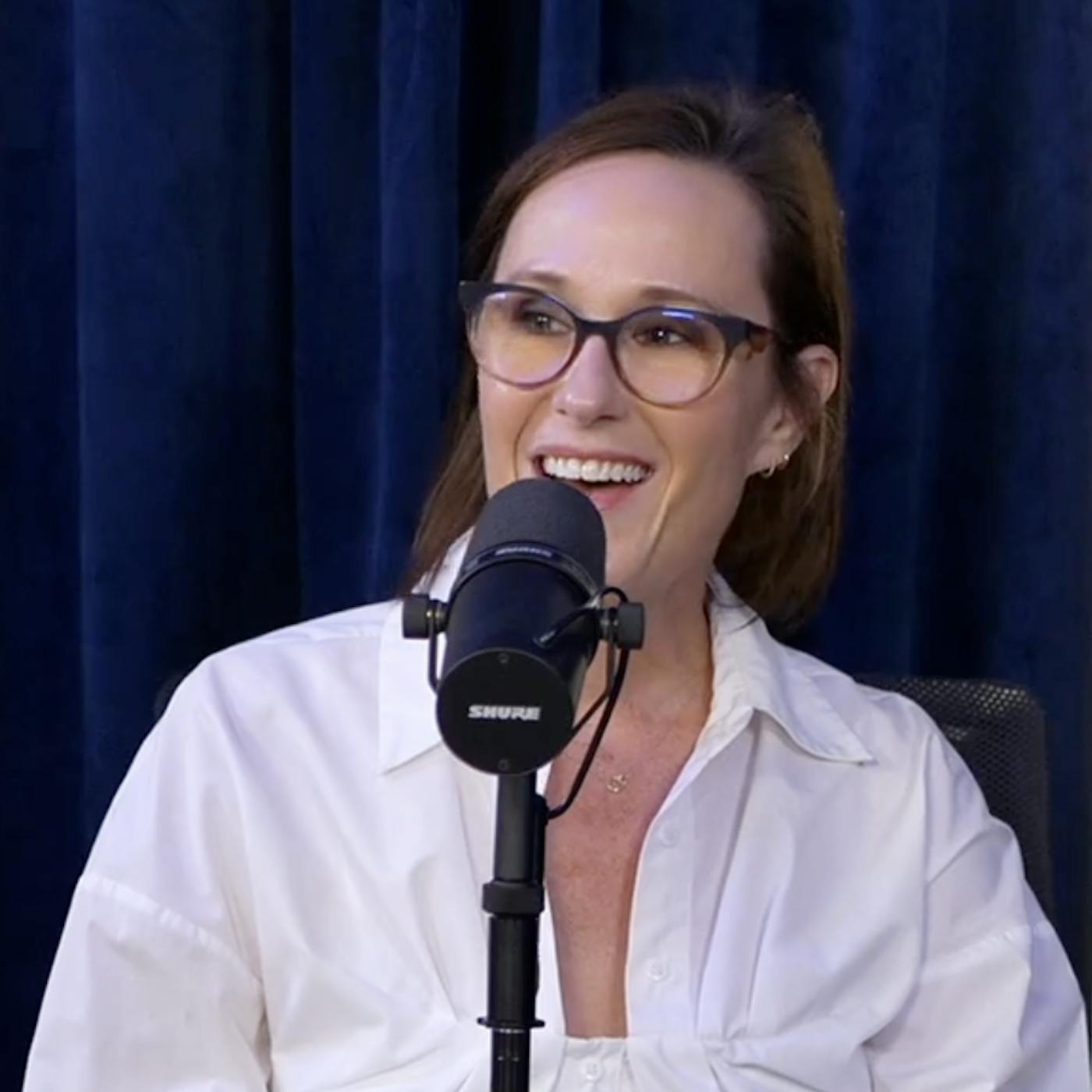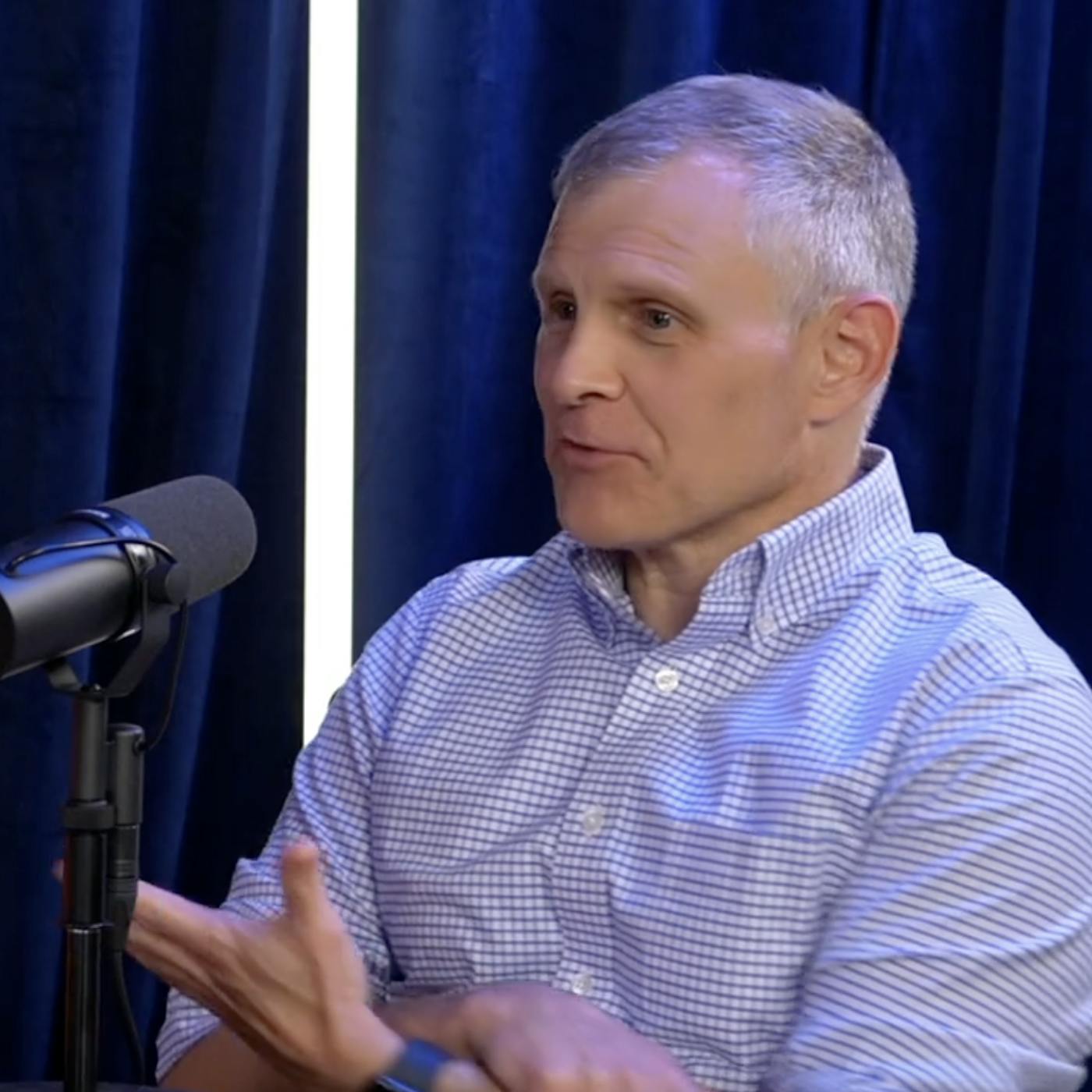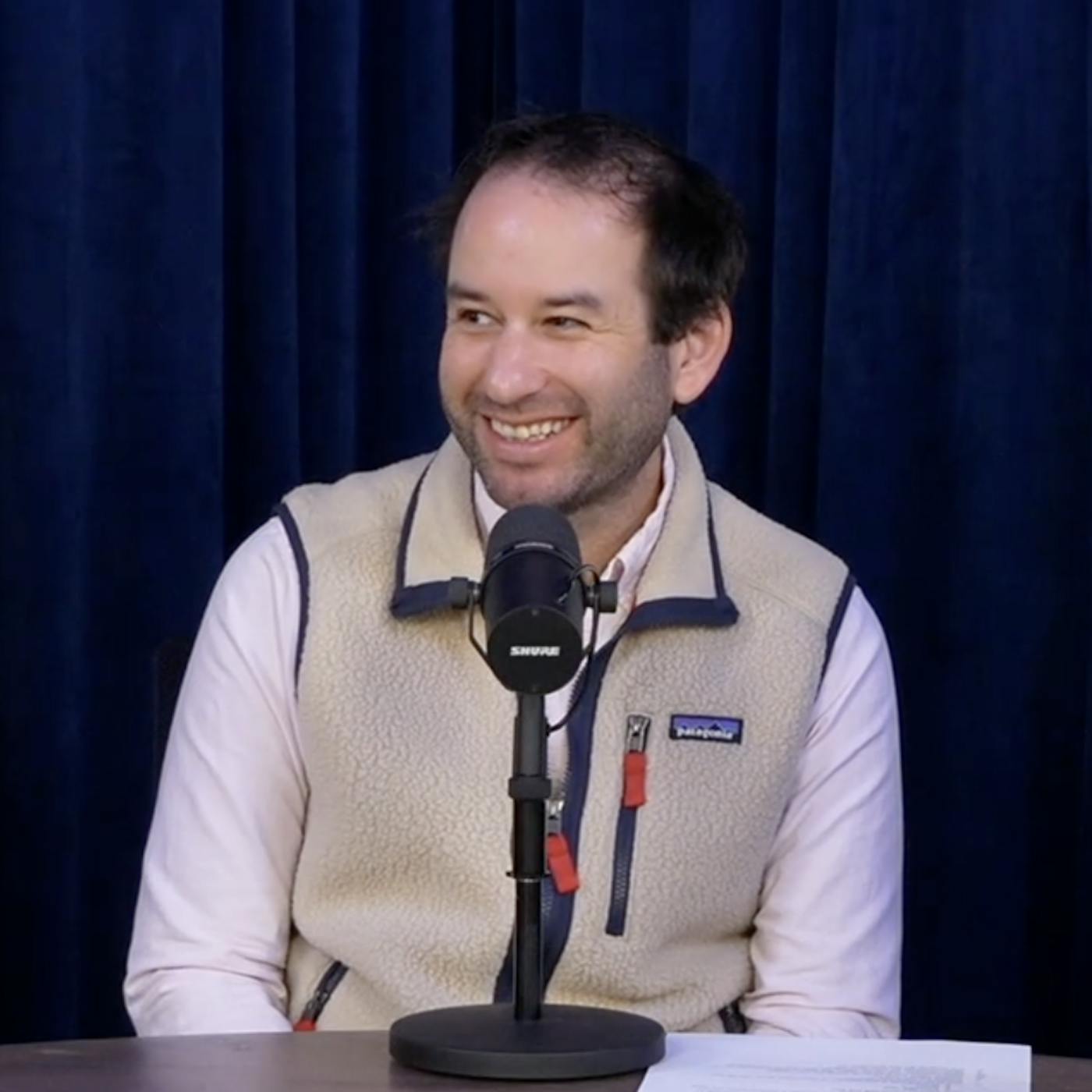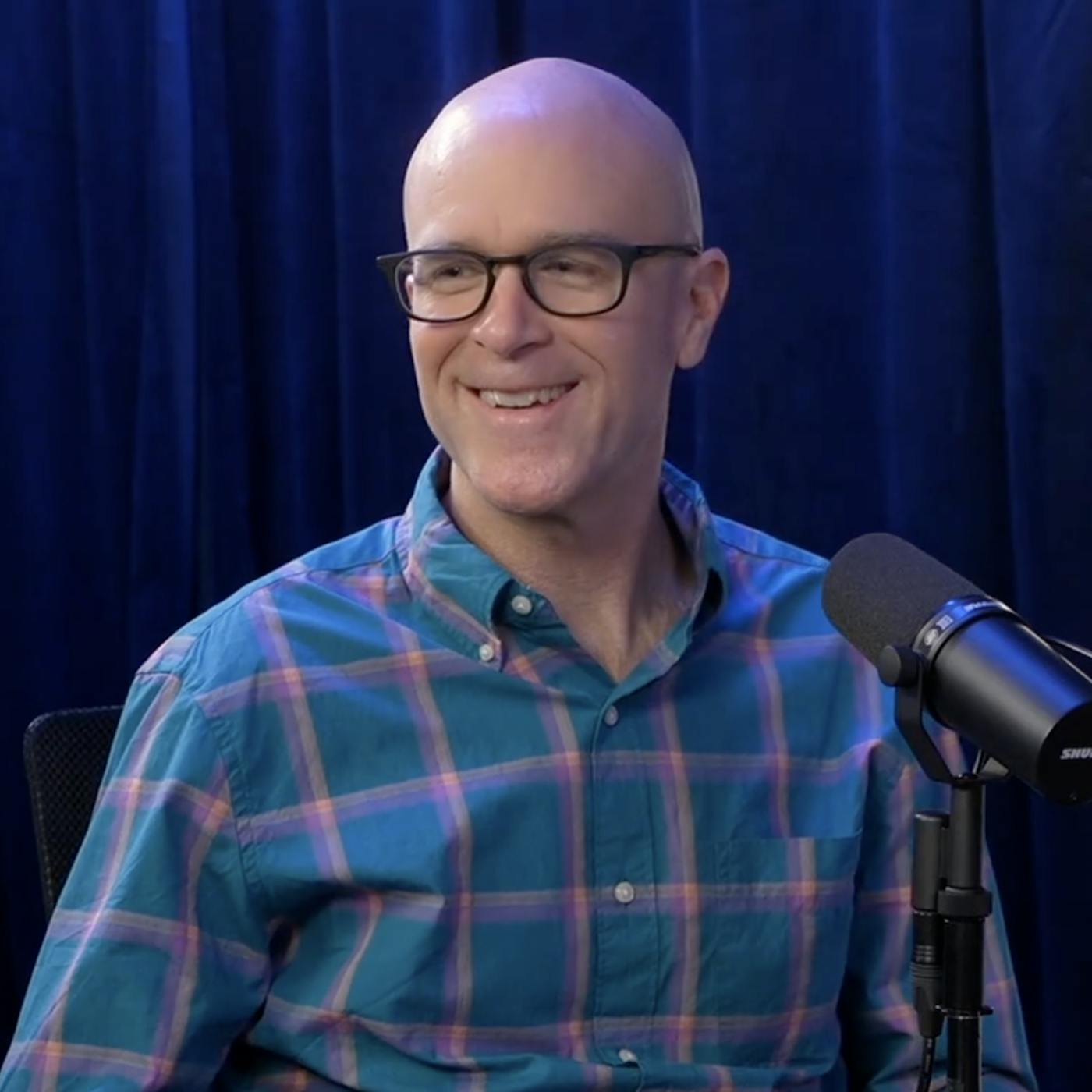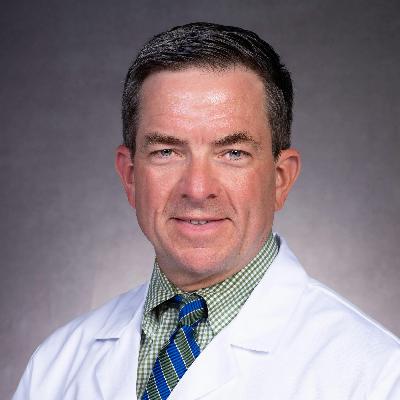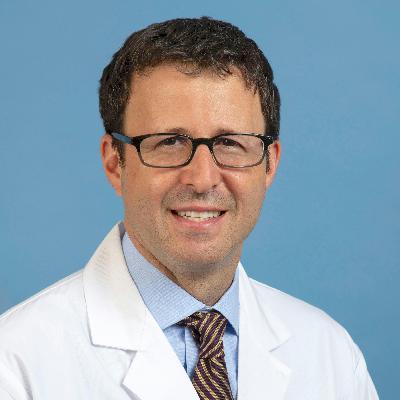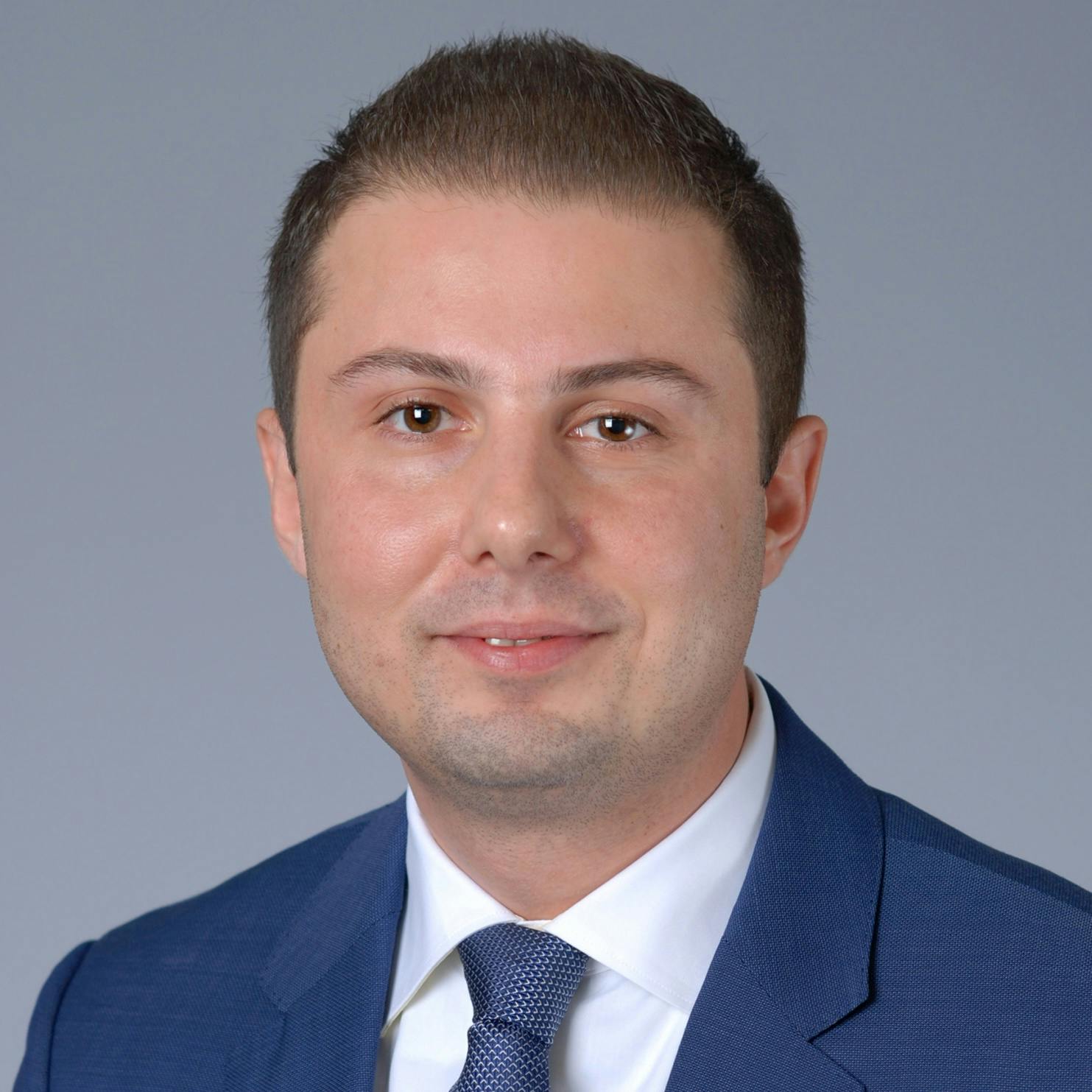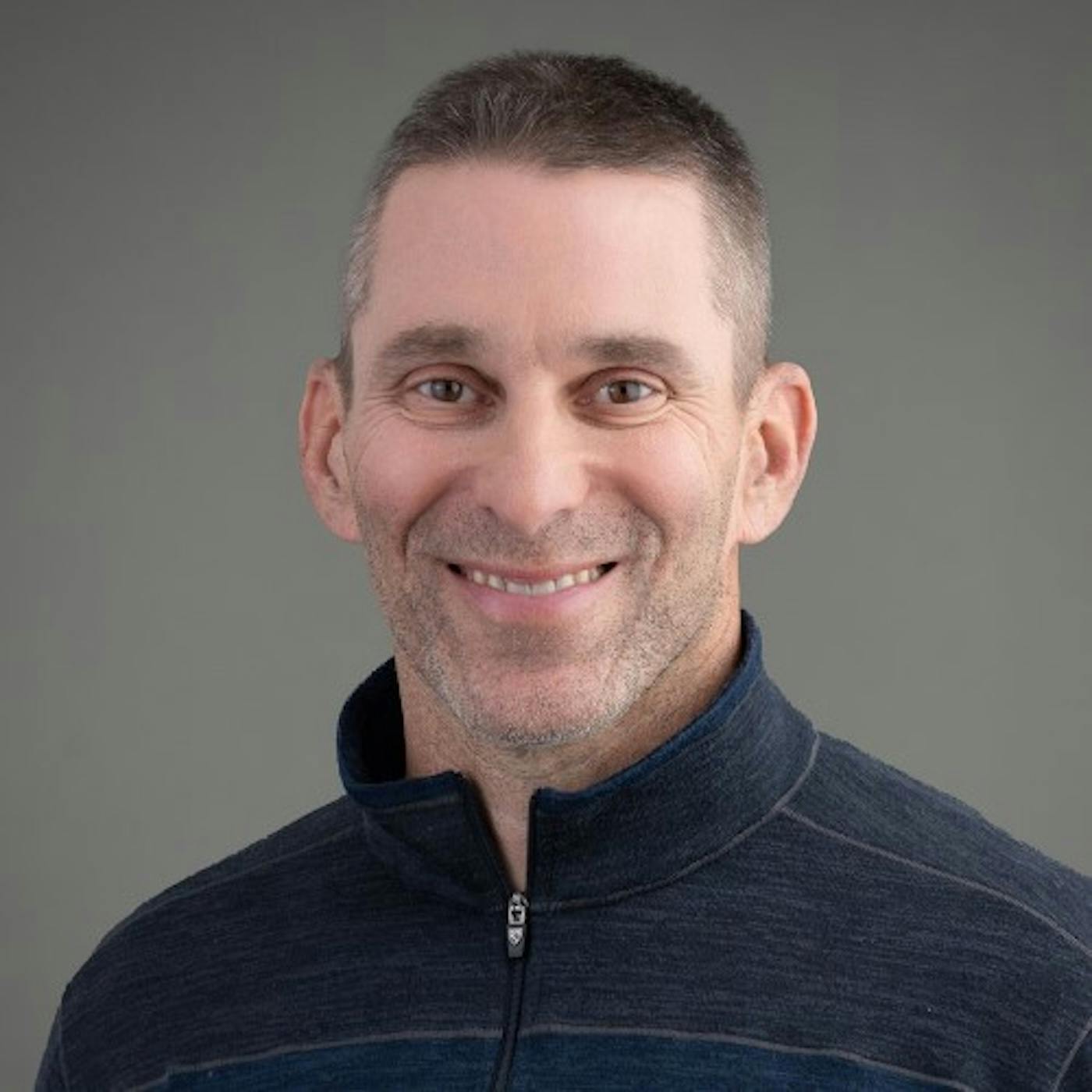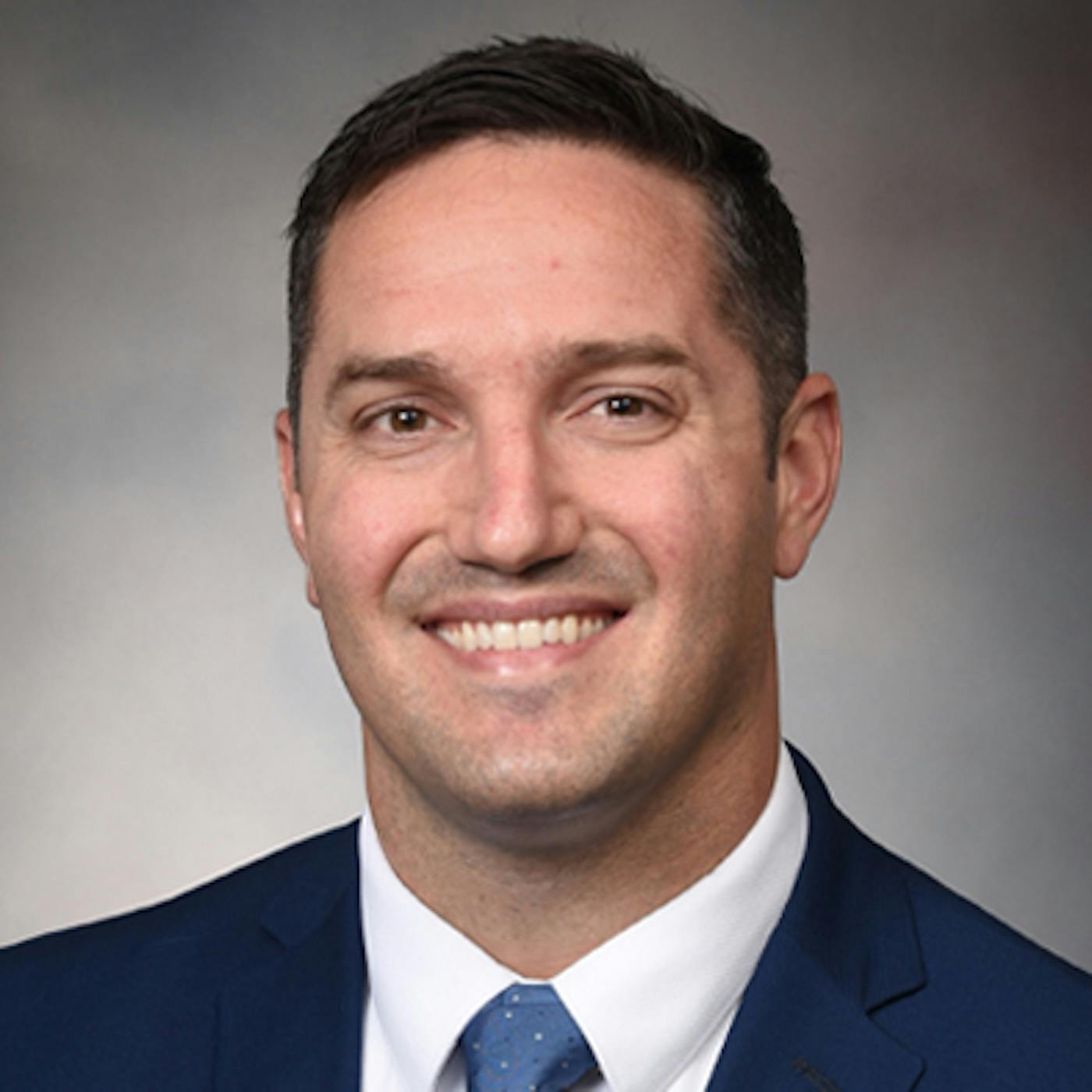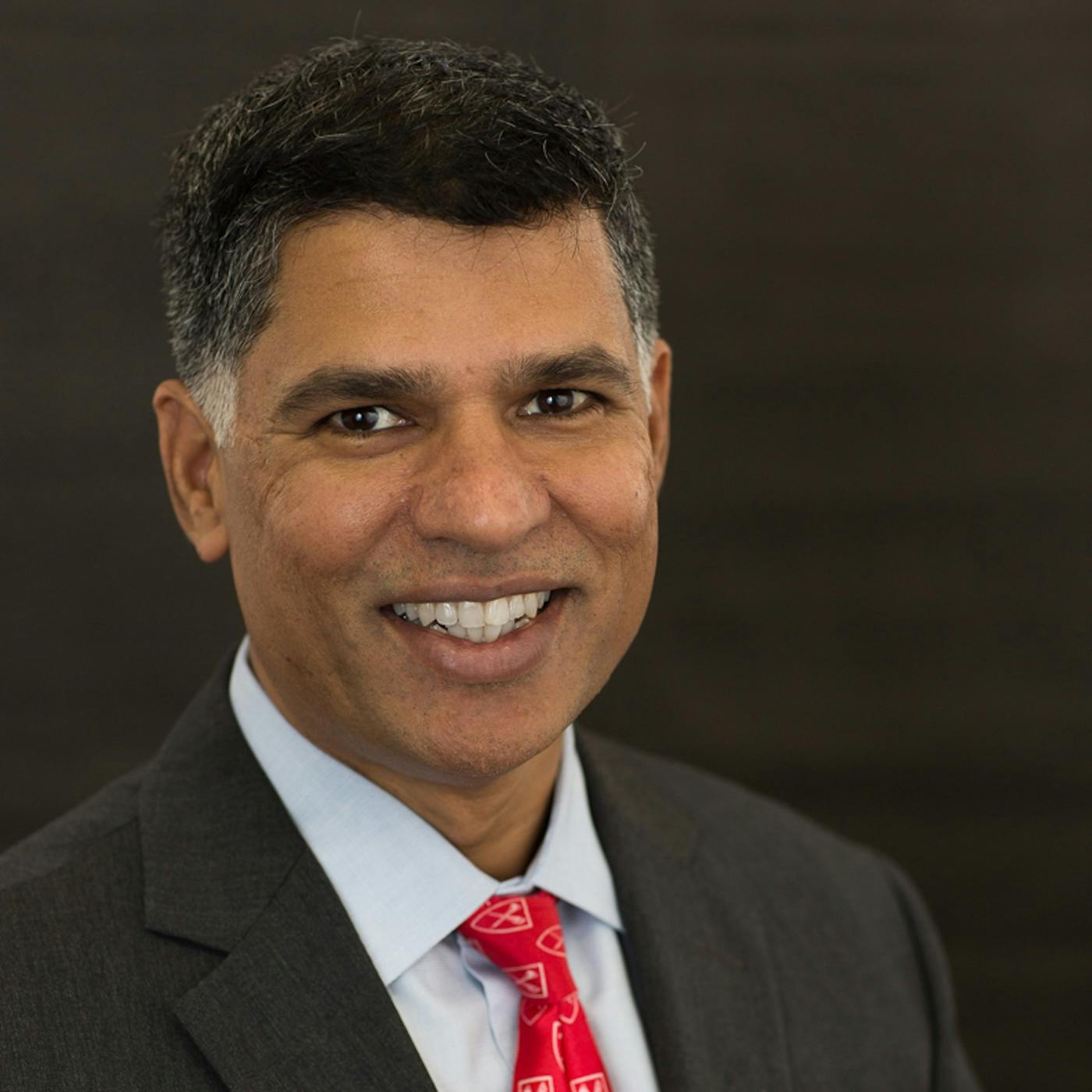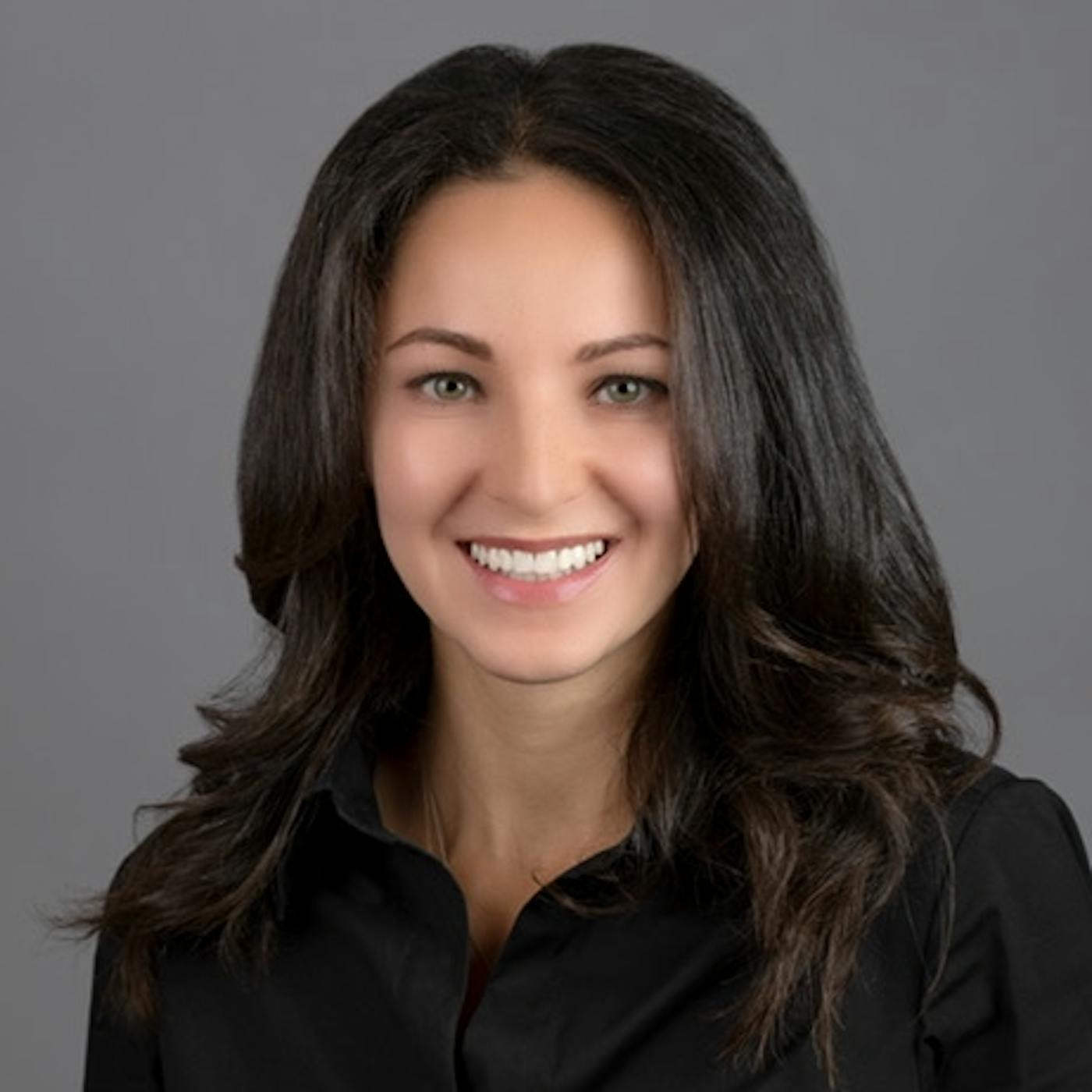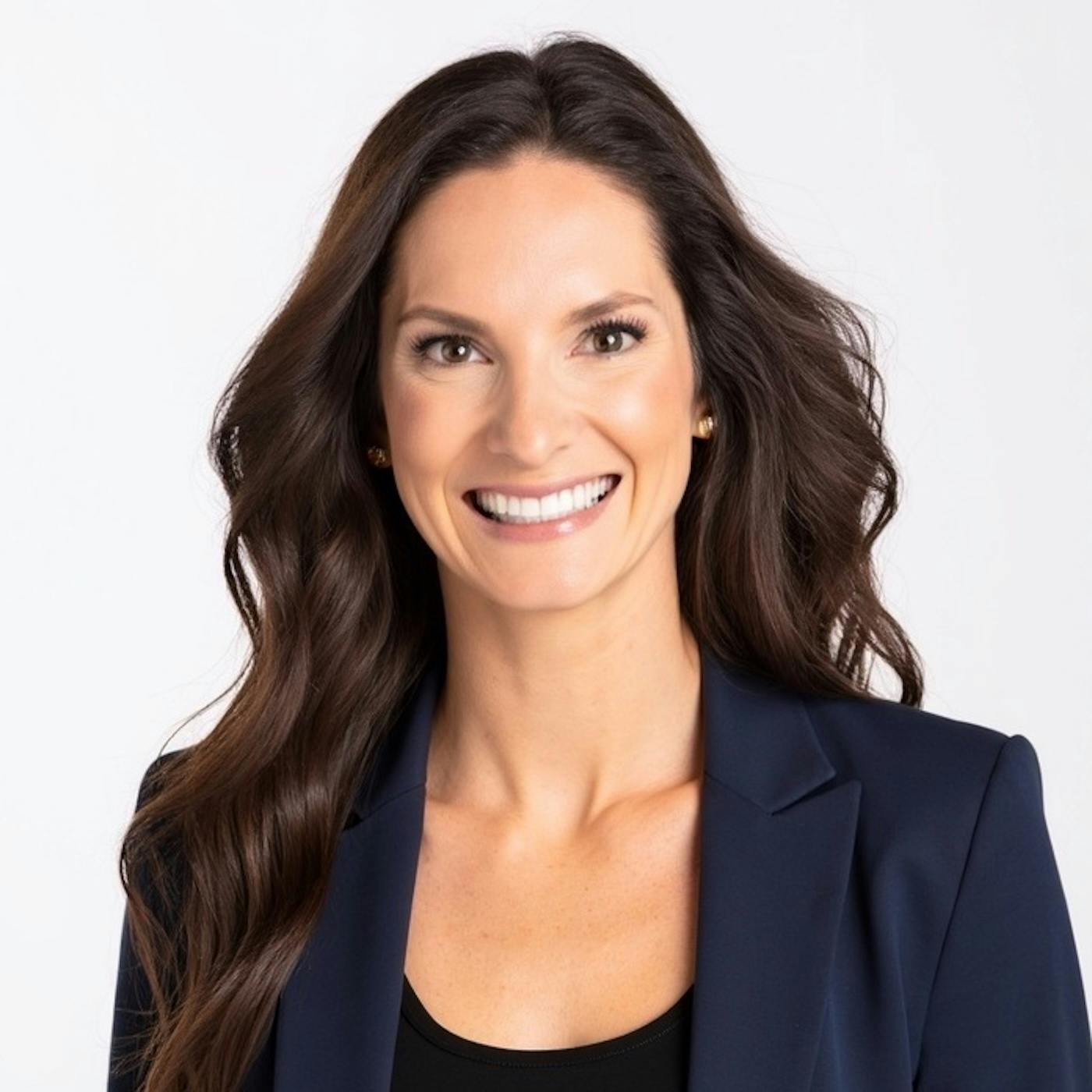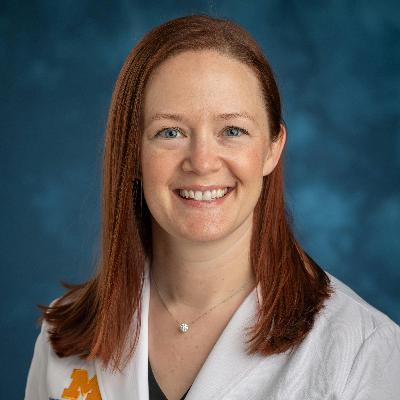Discover BackTable Tumor Board
BackTable Tumor Board

50 Episodes
Reverse
Welcome to the first episode of BackTable Tumor Board, and our first recording session at our new in-person studio! Guest host Dr. Tyler Sandow (interventional radiologist) leads a multidisciplinary discussion about patient care coordination in hepatocellular carcinoma (HCC) diagnosis and treatment, with insights from his colleagues at Ochsner Health– Dr. Steven Young (hepatologist), Dr. Jonathan Mizrahi (medical oncologist), and Deondra Bonds-Adams (patient navigator).
Physicians, nurses, nurse practitioners, and physician assistants can follow this link to earn CME / CE credits for completing an accredited learning activity related to this discussion:
https://www.cmeuniversity.com/course/take/125735
---
This podcast is supported by an educational grant from AstraZeneca Pharmaceuticals and Boston Scientific.
---
SYNPOSIS
The team speaks on the value of having multiple specialties weigh in on treatment conversations that are tailored to each patient’s medical history and risk factors, such as underlying cirrhosis and portal hypertension. Deondra highlights the importance of assessing the patient’s understanding of their disease and the role of physician extenders and schedulers in patient education. Dr. Young discusses the value of outreach clinics and streamlining the transplant evaluation process. Finally, Dr. Mizrahi gives advice on building referral networks and establishing early contact with transplant centers.
---
TIMESTAMPS
00:00 - Introduction
00:46 - Multidisciplinary Tumor Board
06:00 - Patient Experience in Treatment Pathways
10:10 - Barriers to Treatment
16:03 - Benefits of IR Clinic
19:33 - HCC Screening and Risk Factors
24:08 - Building Referral Networks
30:34 - Strategies for Effective Scheduling
35:43 - The Future of HCC Treatment
---
RESOURCES
CME Accreditation Information:
https://f7cae4ec-b69e-490d-9e0f-19b16a6f146d.usrfiles.com/ugd/f7cae4_a7c37ea3cd1b4d3fa53d5edf8dfe255b.pdf
Of all the topics covered during interventional radiology training, dosimetry education is often delayed until after IRs enter clinical practice. In this episode, Drs. Tyler Sandow and Sabeen Dhand host a roundtable discussion with experts on the dosimetry fundamentals that all Y90 operators should understand. They are joined by interventional radiologists Drs. Zachary Berman, Kirema Garcia-Reyes, and Siddharth Padia, who provide their expert insights.
Physicians, nurses, nurse practitioners, and physician assistants can follow this link to earn CME / CE credits for completing an accredited learning activity related to this discussion:
https://www.cmeuniversity.com/course/take/125736
---
This podcast is supported by an educational grant from AstraZeneca Pharmaceuticals and Boston Scientific.
---
SYNPOSIS
The group agrees that dosimetry is not a one-size-fits-all approach. Dosing strategies depend on factors such as tumor size, perfusion territory, underlying liver function, the choice between glass versus resin spheres, and treatment intent. These considerations are illustrated with real-life case examples. The doctors also explore voxel-based dosimetry, a method for calculating the amount of radiation absorbed by different parts of the tumor. They stress the importance of learning how to perform accurate dosage calculations.
Finally, the conversation touches on data from major Y90 trials, current guidelines, and the evolving perspective on Y90 as a potential curative treatment, rather than merely a bridging therapy.
---
TIMESTAMPS
00:00 - Introduction
01:59 - Dosimetry Education During Training
05:46 - Benefit of Individualized Dosing
11:01 - Complications from High Doses
15:19 - Dosage Calculation Cases
22:51 - Duration of Response to Y90
25:00 - Dosing Based on Treatment Intent
29:11 - Challenging Case Example
42:31 - Voxel-Based Dosimetry
45:15 - Using Dosimetry Software
---
RESOURCES
LEGACY Trial (Salem et al, 2021):
https://pmc.ncbi.nlm.nih.gov/articles/PMC8596669/
Voxel-based tumor dose correlates to complete pathologic necrosis after transarterial radioembolization for hepatocellular carcinoma (Pianka et al, 2024):
https://pubmed.ncbi.nlm.nih.gov/38913189/
RAPY90D Trial (Kappadath et al, 2023):
https://jnm.snmjournals.org/content/64/supplement_1/P268
Clinical, dosimetric, and reporting considerations for Y-90 glass microspheres in hepatocellular carcinoma: updated 2022 recommendations from an international multidisciplinary working group (Salem et al, 2023):
https://pubmed.ncbi.nlm.nih.gov/36114872/
International recommendations for personalised selective internal radiation therapy of primary and metastatic liver diseases with yttrium-90 resin microspheres (Levillain, 2021):
https://link.springer.com/article/10.1007/s00259-020-05163-5)
CME Accreditation Information:
https://f7cae4ec-b69e-490d-9e0f-19b16a6f146d.usrfiles.com/ugd/f7cae4_a7c37ea3cd1b4d3fa53d5edf8dfe255b.pdf
In the past five years, the use of immunotherapeutic agents for advanced cancers has emerged as a promising alternative to tyrosine kinase inhibitors and chemotherapy, making it an exciting time to be practicing oncology. In this episode, Dr. Tyler Sandow interviews oncology experts about the landscape of advanced hepatocellular carcinoma (HCC) and the current state of immunotherapy treatments. He is joined by medical oncologists Dr. Jonathan Mizrah, Dr. Lingling Du, and Dr. Adam Burgoyne, as well as interventional oncologist Dr. Zachary Berman.
Physicians, nurses, nurse practitioners, and physician assistants can follow this link to earn CME / CE credits for completing an accredited learning activity related to this discussion:
https://www.cmeuniversity.com/course/take/125737
---
This podcast is supported by an educational grant from AstraZeneca Pharmaceuticals and Boston Scientific.
---
SYNPOSIS
Drs. Burgoyne and Mizrahi provide a primer on immunotherapy and explain how they communicate the principles of this treatment to their patients. Dr. Du discusses the Imbrave clinical trial and how recent studies have shown improved overall survival when immunotherapeutic agents are used, especially when multiple agents targeting various pathways are employed. When choosing between different regimens, the doctors consider factors such as the patient's underlying liver function, symptom burden, and prior treatments.
Importantly, the doctors also discuss contraindications to immunotherapy, including a history of organ transplant, autoimmune disease, and poor performance status—all of which put patients at high risk for deterioration with this treatment. The treatment of patients with poor liver function remains controversial, as underlying cirrhosis may prevent the recovery of liver function. Dr. Berman outlines recent clinical trials studying the effects of transarterial chemoembolization (TACE) combined with immunotherapy. Finally, the doctors discuss the future of HCC treatment and the benefits of continued innovation in both interventional and medical oncology.
---
TIMESTAMPS
00:00 - Introduction to Immunotherapy
04:32 - Notable Clinical Trials
13:39 - HCC Etiology and Immunotherapy Outcomes
18:43 - Contraindications for Immunotherapy
23:05 - Adverse Effects from Treatment
25:14 - Combination Therapy
36:22 - Considerations for Immunotherapy Dosing
40:26 - The Future of HCC Treatment
---
RESOURCES
Atezolizumab plus Bevacizumab in Unresectable Hepatocellular Carcinoma, IMbrave150 Trial (Finn et al, 2020):
https://pubmed.ncbi.nlm.nih.gov/32402160/
Tremelimumab plus Durvalumab in Unresectable Hepatocellular Carcinoma, HIMALAYA Trial (Abou-Alfa et al, 2022):
https://evidence.nejm.org/doi/full/10.1056/EVIDoa2100070
Nivolumab versus sorafenib in advanced hepatocellular carcinoma (CheckMate 459): a randomised, multicentre, open-label, phase 3 trial (Yau, 2022):
https://www.thelancet.com/journals/lanonc/article/PIIS1470-2045(21)00604-5/abstract
Nivolumab (NIVO) plus ipilimumab (IPI) vs lenvatinib (LEN) or sorafenib (SOR) as first-line treatment for unresectable hepatocellular carcinoma (uHCC): First results from CheckMate 9DW (Galle, 2024):
https://ascopubs.org/doi/10.1200/JCO.2024.42.17_suppl.LBA4008
Randomized Phase 3 LEAP-012 Study: Transarterial Chemoembolization With or Without Lenvatinib Plus Pembrolizumab for Intermediate-Stage Hepatocellular Carcinoma Not Amenable to Curative Treatment (Llovet, 2022):
https://pubmed.ncbi.nlm.nih.gov/35119481/
EMERALD-1: A phase 3, randomized, placebo-controlled study of transarterial chemoembolization combined with durvalumab with or without bevacizumab in participants with unresectable hepatocellular carcinoma eligible for embolization (Lencioni, 2024):
https://ascopubs.org/doi/10.1200/JCO.2024.42.3_suppl.LBA432
CME Accreditation Information:
https://f7cae4ec-b69e-490d-9e0f-19b16a6f146d.usrfiles.com/ugd/f7cae4_a7c37ea3cd1b4d3fa53d5edf8dfe255b.pdf
For hepatocellular carcinoma (HCC) patients who are not candidates for liver transplant or resection, lesion ablation can be a curative treatment. With multiple ablation options available and still under investigation, it can be challenging to navigate the differences between them. In this episode, Dr. Tyler Sandow hosts a discussion with interventional radiologists Dr. Kirema Garcia-Reyes, Dr. Sabeen Dhand, and Dr. Kevin Burns on the various ablation options for HCC and when to use each one.
Physicians, nurses, nurse practitioners, and physician assistants can follow this link to earn CME / CE credits for completing an accredited learning activity related to this discussion:
https://www.cmeuniversity.com/course/take/125738
---
This podcast is supported by an educational grant from AstraZeneca Pharmaceuticals and Boston Scientific.
---
SYNPOSIS
The doctors first discuss Barcelona-Clinic Liver Cancer (BCLC) Stage A patients, where lesion size and location are key factors in deciding between ablation and transarterial therapies. They then compare cryoablation and microwave ablation, highlighting that cryoablation offers better visualization and control of the ablation zone, while microwave ablation is more effective for treating larger lesions.
Dr. Burns introduces histotripsy, a noninvasive treatment that uses ultrasound energy to mechanically ablate tumors. He shares his experiences as an early adopter of this technology and discusses how intraoperative cone beam CT can help treat lesions located near critical structures or those poorly visualized on ultrasound. Finally, Dr. Garcia-Reyes and Dr. Berman provide insights into patient selection, pre-procedural imaging, and technical tips for Y90.
---
TIMESTAMPS
00:00 - Introduction
02:04 - Ablation vs Y90 in BCLC A Patients
05:58 - Same-Day Y90
15:55 - Y90 for Large Tumors
17:51 - Ideal Cases for Cryoablation
19:38 - Explanation of Histotripsy
32:09 - Procedural Specifics for Histotripsy
38:21 - Technical Tips for Y90
---
RESOURCES
Including the Hollow Viscera (Stomach or Bowel) within the Ice Ball during Cryoablation: A Review of Adverse Events (Abramyan et al, 2024):
https://www.jvir.org/article/S1051-0443(24)00681-X/abstract
CME Accreditation Information:
https://f7cae4ec-b69e-490d-9e0f-19b16a6f146d.usrfiles.com/ugd/f7cae4_a7c37ea3cd1b4d3fa53d5edf8dfe255b.pdf
Treatment of hepatocellular carcinoma (HCC), like that of many other cancers, spans a spectrum from curative to palliative intent. To explore the "grey zone" of treatment goals for intermediate-stage HCC patients, Dr. Sabeen Dhand interviews a panel of experts in the field: medical oncologists Dr. Adam Burgoyne and Dr. Lingling Du, along with interventional radiologists Dr. Kirema Garcia-Reyes and Dr. Zachary Berman.
Physicians, nurses, nurse practitioners, and physician assistants can follow this link to earn CME / CE credits for completing an accredited learning activity related to this discussion:
https://www.cmeuniversity.com/course/take/125739
---
This podcast is supported by an educational grant from AstraZeneca Pharmaceuticals and Boston Scientific.
---
SYNPOSIS
The discussion begins with an explanation of the Barcelona-Clinic Liver Cancer (BCLC) staging system. While this system takes into account helpful factors such as liver function, performance status, and tumor burden, it fails to fully capture the true heterogeneity of the HCC patient population. Additional considerations include tumor biology, response to previous treatments, and the location of metastases. The specialists then share their experiences in treating patients with comorbid gastrointestinal cancers and mixed tumors, discuss the benefits of an interventional oncology clinic setting, and highlight virtual opportunities for connecting with tumor boards. They also offer advice on patient education regarding treatment options.
---
TIMESTAMPS
00:00 - Introduction to BCLC Staging
03:02 - Impact of Performance Status
06:29 - Predictors of Survival in HCC
09:51 - Palliative versus Curative Treatment Intent
13:55 - Comorbid and Mixed Gastrointestinal Cancers
16:51 - Adverse Effects of Treatment
20:37 - Interventional Oncology in the Clinic Setting
23:06 - Navigating Multiple Provider Viewpoints
28:01 - Complex Case Examples
---
RESOURCES
BCLC strategy for prognosis prediction and treatment recommendation: The 2022 update (Reig et al, 2022):
https://www.journal-of-hepatology.eu/article/S0168-8278(21)02223-6/fulltext
CME Accreditation Information:
https://f7cae4ec-b69e-490d-9e0f-19b16a6f146d.usrfiles.com/ugd/f7cae4_a7c37ea3cd1b4d3fa53d5edf8dfe255b.pdf
The process of liver transplantation involves many complexities, and each patient's path to transplant is unique. To offer insider perspectives on this process, Dr. Zachary Berman sits down with transplant and hepatobiliary surgeon Dr. John Seal, as well as transplant hepatologists Dr. Heather Patton and Dr. Steve Young.
Physicians, nurses, nurse practitioners, and physician assistants can follow this link to earn CME / CE credits for completing an accredited learning activity related to this discussion:
https://www.cmeuniversity.com/course/take/125740
---
This podcast is supported by an educational grant from AstraZeneca Pharmaceuticals and Boston Scientific.
---
SYNPOSIS
The panel begins by discussing the multidisciplinary pre-transplant evaluation process, which assesses factors such as liver function, comorbidities, surgical risk, and the availability of psychosocial support. Once a patient is listed for transplant, they enter a system that prioritizes those with the highest Model for End-Stage Liver Disease (MELD) score. During the waiting period, several comorbidities should be carefully monitored. Dr. Seal explores the impact of portal vein hypertension and portal vein thrombosis, explaining how these conditions may necessitate intraoperative thrombectomy or bypass. Dr. Patton and Dr. Young focus on considerations for using anticoagulation in patients with a high baseline bleeding risk and selecting the appropriate anticoagulant for patients listed for transplant.
For patients with hepatocellular carcinoma (HCC), eligibility for MELD exception points may depend on factors such as time spent on the waiting list, adherence to the Milan criteria, and the presence of extrahepatic complications of liver disease. The panel also discusses bridging therapies to transplant, including Y90 and TACE. In the peri-transplant phase, they highlight innovations such as living donor transplants, liver perfusion pumps, and the use of hepatitis C- and HIV-positive organs. Finally, the discussion turns to post-transplant considerations, including surgical complications, organ rejection, immunosuppression, predictors of HCC recurrence, and long-term surveillance.
---
TIMESTAMPS
00:00 - Introduction
01:16 - Current Landscape of Liver Transplantation
03:22 - Transplant Evaluation Process
09:48 - Timeline from Listing to Transplantion
11:16 - Treating Portal Vein Thrombosis and Hypertension
18:44 - MELD Exception Points
22:05 - Bridging Therapies
25:34 - Peri-Transplant Considerations
30:53 - Post-Transplant Period
37:39 - Repeat Transplantation
---
RESOURCES
Model for end-stage liver disease (MELD) and allocation of donor livers (Wiesner et al, 2003):
https://www.gastrojournal.org/article/S0016-5085%2803%2950022-1/fulltext
Liver transplantation for the treatment of small hepatocellular carcinomas in patients with cirrhosis- Milan Criteria (Mazzaferro et al, 1996):
https://pubmed.ncbi.nlm.nih.gov/8594428/
Validation of the prognostic power of the RETREAT score for hepatocellular carcinoma recurrence using the UNOS database (Mehta et al, 2019):
https://pmc.ncbi.nlm.nih.gov/articles/PMC6445634/
CME Accreditation Information:
https://f7cae4ec-b69e-490d-9e0f-19b16a6f146d.usrfiles.com/ugd/f7cae4_a7c37ea3cd1b4d3fa53d5edf8dfe255b.pdf
Is surgery truly the "cure" for hepatocellular carcinoma (HCC), and when is it a viable option? In this episode, Dr. Sabeen Dhand leads a roundtable discussion with interventional radiologist Dr. Siddharth Padia and transplant/hepatobiliary surgeons Dr. John Seal and Dr. Gabriel Schnickel, delving into the complexities of surgical treatments for HCC and the evolving landscape of liver resection and transplantation.
Physicians, nurses, nurse practitioners, and physician assistants can follow this link to earn CME / CE credits for completing an accredited learning activity related to this discussion:
https://www.cmeuniversity.com/course/take/125741
---
This podcast is supported by an educational grant from AstraZeneca Pharmaceuticals and Boston Scientific.
---
SYNPOSIS
The doctors begin by discussing how they manage patient expectations regarding both palliative and curative treatments, highlighting the risk of recurrent HCC as a new lesion. They then outline key factors that influence their recommendations for liver transplant versus resection, such as the extent of underlying liver disease, the function of the future liver remnant, body habitus, overall health, and organ availability. The surgeons also review various surgical approaches to liver resection and recent advancements in liver transplantation, including living donor transplants and the ability to refer patients for downstaging procedures.
Dr. Padia explains the original role of Y90 as a bridging treatment to downstage tumors and promote hypertrophy in the non-diseased liver segments, preparing the organ for surgical resection. However, Y90 treatment can also lead to the formation of adhesions, which may complicate future surgeries. Finally, the doctors discuss strategies to improve care coordination between community physicians and transplant centers to optimize patient outcomes.
---
TIMESTAMPS
00:00 - Curative vs. Palliative Treatment
04:03 - Choosing Between Transplantation and Resection
05:47 - Liver Resection Types
07:27 - Bridging Role of Y90
12:14 - Evolving Landscape of Liver Transplantation
20:59 - Patient Counseling in Minimally Invasive Procedures
28:40 - Considerations for Surgery After Y90
33:32 - Coordination Between Specialists
40:08 - Immunotherapy as a Bridge to Transplant
---
RESOURCES
CME Accreditation Information:
https://f7cae4ec-b69e-490d-9e0f-19b16a6f146d.usrfiles.com/ugd/f7cae4_a7c37ea3cd1b4d3fa53d5edf8dfe255b.pdf
Are you seeking to build your reputation and patient base within interventional oncology? In this episode, host Dr. Zachary Berman interviews Dr. Siddarth Padia, Dr. Tyler Sandow, Dr. Kavi Krishnasamy, and Dr. Kevin Burns about their journeys into interventional oncology (IO) and their experiences providing care in different practice settings.
Physicians, nurses, nurse practitioners, and physician assistants can follow this link to earn CME / CE credits for completing an accredited learning activity related to this discussion:
https://www.cmeuniversity.com/course/take/125742
---
This podcast is supported by an educational grant from AstraZeneca Pharmaceuticals and Boston Scientific.
---
SYNPOSIS
The doctors begin by discussing how they became interested in interventional oncology, with most of them recognizing opportunities to address unmet needs in the field. Each guest shares insights on the timelines and challenges involved in starting their IO practices, which vary significantly today. For instance, telehealth clinics are particularly viable in private practice IO, thanks to conferencing software and virtual translators. Hybrid care models, which combine in-person and remote consultations, can help overcome patient-level barriers such as time and transportation. The panel also emphasizes how increased clinic availability can significantly drive growth in procedural volume. Finally, they offer advice for starting an IO practice, including the importance of having clinic support staff, building strong relationships with referring physicians, and staying up to date with new technologies.
---
TIMESTAMPS
00:00 - Introduction
05:38 - Balancing Career Interests and Expectations
07:10 - Building an Interventional Oncology Practice
13:42 - Gaining Trust from Referring Physicians
17:33 - Importance of Open Communication
19:19 - Comparing Clinic Settings
26:01 - Essential Components of a Clinic
33:28 - Narrowing Your Interventional Practice
40:09 - Introducing New Technology
---
RESOURCES
CME Accreditation Information:
https://f7cae4ec-b69e-490d-9e0f-19b16a6f146d.usrfiles.com/ugd/f7cae4_a7c37ea3cd1b4d3fa53d5edf8dfe255b.pdf
Do you ever wish you could be a fly on the wall at a tumor board meeting? In this episode of BackTable, we’re excited to give you an insider’s view of the real case discussions that take place during hepatocellular carcinoma (HCC) tumor boards. Host Dr. Zach Berman sits down with a multidisciplinary team, including Drs. Adam Burgoyne (medical oncologist), Heather Patton (hepatologist), Siddharth Padia (interventional radiologist), and Gabriel Schnickel (transplant and hepatobiliary surgeon).
Physicians, nurses, nurse practitioners, and physician assistants can follow this link to earn CME / CE credits for completing an accredited learning activity related to this discussion:
https://www.cmeuniversity.com/course/take/125743
---
This podcast is supported by an educational grant from AstraZeneca Pharmaceuticals and Boston Scientific.
---
SYNPOSIS
The team walks through a range of diverse HCC cases, reviewing patient histories, imaging, and treatment options. They cover eight cases in total, each featuring patients with varying treatment histories, comorbidities, liver function, and lesion characteristics. For the full educational experience, we recommend watching the video format on our YouTube channel.
---
TIMESTAMPS
00:00 - Introduction
00:47 - Case 1: Small Lesion in a Young Patient
05:01 - Case 2: Moderate Sized Lesion in an Older Patient
11:10 - Case 3: Multifocal HCC with Dominant Lesion
21:09 - Case 4: Dominant Lesion with Portal Hypertension
32:08 - Case 5: Ruptured Solitary Lesion
34:34 - Case 6: Rupture with Multifocal Lesions
44:08 - Case 7: Portal Vein Invasion
52:12 - Case 8: Metastatic HCC After Transplant
---
RESOURCES
CME Accreditation Information:
https://f7cae4ec-b69e-490d-9e0f-19b16a6f146d.usrfiles.com/ugd/f7cae4_a7c37ea3cd1b4d3fa53d5edf8dfe255b.pdf
Medical, surgical, radiation, and interventional oncology all play vital roles in delivering care to patients battling liver cancer. How do we optimize outcomes when so many specialties have something to offer the same patient? The answer is collaborative oncology. Dr. Robert Martin (Director of Surgical Oncology, University of Louisville) and pioneer in liver-directed therapies, joins host Dr. Sabeen Dhand to discuss a collaborative approach to oncology and recent advances in locoregional therapy.
---
This podcast is supported by:
RADPAD® Radiation Protection
https://www.radpad.com/
---
SYNPOSIS
Dr. Martin discusses the importance of a growth mindset in advancing medical techniques and fostering collaborations between specialists. He then shares insights into minimally invasive procedures, such as microwave ablation and irreversible electroporation (IRE). The doctors also touch on the evolution of liver cancer treatments, emphasizing the significance of clinical trials on the horizon. To conclude, Dr. Martin encourages young professionals in surgery and interventional radiology to stay open-minded, be life-long learners, and find synergistic ways to integrate new technologies into patient care.
---
TIMESTAMPS
00:00 - Introduction
02:31 - Dr. Martin’s Background and Career Path
06:18 - Evolution of Liver Directed Therapies
10:12 - Collaboration Between Specialties
18:34 - Clinical Trials and Emerging Therapies
36:08 - Advice for Young Professionals
39:15 - Conclusion
---
RESOURCES
Radioembolization Oncology Trial Utilizing Transarterial Eye90 (ROUTE 90) for the Treatment of HCC:
https://clinicaltrials.gov/study/NCT05953337?term=NCT05953337&rank=1
Intratumoral Injection of IP-001 Following Thermal Ablation in Patients With CRC, NSCLC, and STS (INJECTABL-1):
https://clinicaltrials.gov/study/NCT05688280
Immunophotonics, CIRSE, and Next Research Announce Innovative Phase 2/3 Clinical Trial: INJECTABL-3:
https://immunophotonics.com/news/immunophotonics-cirse-and-next-research-announce-innovative-phase-2-3-clinical-trial-injectabl-3/
There are now multiple phase 3 studies on combination transarterial chemoembolization (TACE) and immunotherapy showing a significant benefit over TACE alone. How do these findings change the hepatocellular carcinoma (HCC) treatment algorithm? In this multidisciplinary episode of the BackTable Podcast, Dr. Richard Finn (Medical Oncologist at UCLA) and Dr. Julius Chapiro (Interventional Radiologist at Yale University) join host Dr. Chris Beck to discuss immunotherapy, TACE, emerging trends in HCC treatment, and the future of the field.---This podcast is supported by an educational grant from Guerbet.---SYNPOSISThe doctors highlight the importance of high quality clinical data and the pivotal studies shaping current best practices. They explore the role of the different players on the multidisciplinary team and compare the oncologic and radiologic perspectives. Additionally, they discuss the synergy between TACE and immunotherapy, the criteria for selecting appropriate treatments, and the ongoing need for research and collaboration.---TIMESTAMPS00:00 - Introduction 03:35 - HCC from an Oncologic Perspective 05:33 - Radiological Perspective on Liver Cancer06:50 - Referral Patterns and Organizing a Multidisciplinary Approach18:01 - Explaining TACE and Variations in the Procedure27:27 - Choosing the Right Procedure for HCC36:13 - Making a Decision on Medical Treatment Candidacy 42:23 - Importance of Data Driven HCC Treatment, Practical Insights, and Studies to Know55:30 - Planning an Approach for a TACE Procedure01:02:26 - Final Thoughts and Future Prospects in Liver Cancer Treatment---RESOURCESBarcelona Staging System:https://www.ncbi.nlm.nih.gov/books/NBK569796/table/Ch3-t0001/TRACE Trial:https://pubs.rsna.org/doi/full/10.1148/radiol.211806PREMIERE Trial:https://www.gastrojournal.org/article/S0016-5085(16)34971-X/fulltextEMERALD-1 Trial:https://ascopubs.org/doi/10.1200/JCO.2024.42.3_suppl.LBA432LEAP O12 Study:https://www.thelancet.com/journals/lancet/article/PIIS0140-6736(24)02575-3/abstract
What does it take to deliver truly personalized, multidisciplinary care in testicular cancer? Get an inside look in this episode of BackTable Tumor Board, where renowned testicular cancer experts Dr. Nabil Adra and Dr. Richard Matulewicz join host Dr. Aditya Bagrodia for a virtual tumor board session on the nuanced management of germ cell tumors.
---
This podcast is supported by:
Ferring Pharmaceuticals
---
SYNPOSIS
The expert panel uses specific patient cases to review their decision-making processes on the use of surgery, chemotherapy, and radiation. They highlight the importance of a multidisciplinary approach, particularly for advanced disease and challenging surgical scenarios. The episode reviews patient-specific factors, standard treatment protocols, post-treatment surveillance, and the latest research. This episode also highlights the benefits of personalized cancer care.
---
TIMESTAMPS
00:00 - Case Presentation: 23-Year-Old Male with Testicular Mass09:53 - Surveillance vs. Adjuvant Therapy Debate13:53 - Recurrence, Comprehensive Staging, and Next Steps23:09 - Case Study: 44-Year-Old with Mixed Non-Seminoma Germ Cell Tumor27:47 - Surveillance and Surgery Recommendations28:11 - Case Study: 17-Year-Old with Developmental Delay and Cancer30:10 - Chemotherapy, Surgical Timing, and Prognosis44:58 - Case Study: 21-Year-Old with Scrotal Swelling47:12 - Surgical Considerations and Multidisciplinary Approach
---
RESOURCES
Society of Urologic Oncologyhttps://suonet.org/home.aspx
How can urologists and radiologists work together to improve kidney cancer treatment? In this episode, BackTable Tumor Board brings together Dr. Jason Abel (Professor of Urology and Radiology at the University of Wisconsin), Dr. Louis Hinshaw (Section Chief of Abdominal Imaging Intervention at the University of Wisconsin), and Dr. Ruchika Talwar (Assistant Professor of Urologic Oncology at Vanderbilt) for a multidisciplinary conversation regarding the treatment of renal tumors.
---
This podcast is supported by:
Ferring Pharmaceuticals
---
SYNPOSIS
Their discussion covers the history and benefits of collaboration between urology and interventional radiology (IR), advances in image-guided procedural technologies, and the importance of teamwork in improving patient outcomes. The episode also considers the encouraging, but limited data in IR treatments such as microwave ablation and discusses the lasting role for surgery. Finally, Dr. Abel and Dr. Hinshaw share their experiences in establishing a successful interdisciplinary kidney cancer program. Ultimately, they conclude that the future of renal tumor treatment lies not in silos, but in collaboration.
---
TIMESTAMPS
00:00 - Multidisciplinary Collaboration in Renal Tumor Treatment05:59 - Advancements in Ablation Techniques: From Cryoablation to Microwave10:13 - Ablation vs. Surgery: Patient Selection and Clinical Decision Making14:00 - Technical Considerations and Complications in Ablation Procedures24:19 - Patient Experience and Recovery Post-Ablation36:17 - Importance of Teamwork in Modern Medicine
---
RESOURCES
Society of Urologic Oncologyhttps://suonet.org/home.aspx
How can pediatric and adult urologists team up to tackle complex cancer cases? In this episode of the BackTable Tumor Board, host Dr. Amanda Buchanan, Division Chief of Pediatric Urology at the University of Kentucky, is joined by her colleagues Dr. Patrick Hensley, an adult urologic oncologist, and Dave Rodeberg, Division Chief of Pediatric Surgery. Their discussion centers around the importance of professional collaboration in urologic oncology care in order to improve patient outcomes.
---
This podcast is supported by:
Ferring Pharmaceuticals
---
SYNPOSIS
The urologists discuss topics such as the experiences and benefits of interdisciplinary collaboration in complex cases and the role of pediatric urologists in treating adolescent and young adult patients. They also provide insights into the Children's Oncology Group (COG) studies and their intersections with adult oncology research. The episode concludes with practical advice for other institutions aiming to improve collaborative efforts between pediatric and adult urology departments.
---
TIMESTAMPS
00:00 - Importance of Collaboration in Urologic Oncology05:38 - Challenges in Multidisciplinary Collaboration08:30 - Pediatric Urologists’ Role in Testicular Cancer11:05 - Clinical Trials and Research Collaborations14:21 - Navigating COG and Adult Oncology Groups19:03 - Collaborative Approach to Kidney Tumors29:31 - Resident Education and Collaboration35:22 - Final Thoughts
---
RESOURCES
Society of Urologic Oncology:https://suonet.org/home.aspx
Children’s Oncology Grouphttps://www.childrensoncologygroup.org/
What if the key to better cancer outcomes lies not just in surgery or chemotherapy, but also in mindfulness, movement, and diet? In this episode of the BackTable Tumor Board, host Dr. Aditya Bagrodia interviews urologic oncologist Dr. Viraj Master, Professor of Urology at Emory University, about his role in developing the integrative oncology and survivorship service line at Winship Cancer Institute.
---
This podcast is supported by:
Ferring Pharmaceuticals
---
SYNPOSIS
They discuss the evidence-based use of complementary therapies alongside conventional cancer treatments, touching on various integrative methods including diet, exercise, mindfulness, acupuncture, yoga, and supplements. Dr. Master emphasizes the importance of physicians being open to these practices and understanding their potential benefits for improving patient outcomes and quality of life, even in highly acute cases like muscle-invasive bladder cancer. The conversation covers the importance of honesty and understanding across patient journeys–from initial diagnosis to survivorship–highlighting the value of holistic approaches in cancer care.
---
TIMESTAMPS
00:00 - Integrative Oncology: Definitions and Basics06:28 - Exercise and Its Impact on Cancer Treatment08:12 - Physician Perspectives on Complementary Medicine20:58 - Acupuncture and Acupressure in Cancer Care25:28 - Practical Implementation of Integrative Approaches31:30 - Supplements and Immuno Nutrition36:25 - Cannabis, CBD, and Ayurveda in Cancer Care44:39 - Conclusion and Final Thoughts
---
RESOURCES
Society of Urologic Oncologyhttps://suonet.org/home.aspx
With so many treatment modalities for upper tract urothelial carcinoma, how does new evidence inform optimal care? In this episode of BackTable Tumor Board, urologic oncologist Dr. Nirmish Singla (Johns Hopkins), medical oncologist Dr. Jeannie Hoffman-Censits (Johns Hopkins), and urologic oncologist Dr. Bogdana Schmidt discuss treatment and diagnosis of upper tract urothelial carcinoma (UTUC).
---
This podcast is supported by:
Ferring Pharmaceuticals
---
SYNPOSIS
The discussion covers real-world UTUC cases, highlighting diagnostic challenges, treatment options, and evidence-based management strategies. They address scenarios ranging from localized to advanced UTUC, the role of systemic therapies, perioperative treatments, and the potential for novel approaches with immune checkpoint inhibitors. The episode underscores the evolving landscape of UTUC treatment and the importance of clinical trials and emerging biomarkers in improving patient outcomes.
---
TIMESTAMPS
00:00 - Introduction 02:49 - Case Study 1: 66-Year-Old Male with UTUC11:19 - Case Study 2: 73-Year-Old Male with High-Grade Urothelial Carcinoma28:11 - Intravesical Chemotherapy Protocols30:44 - Case Study 3: 57-Year-Old Male with Recurrent Urothelial Cancer41:25 Clinical Trials and Emerging Treatments45:40 Case Study: 55-Year-Old Female with Bulky Lymphadenopathy 56:45 Concluding Remarks and Future Directions
---
RESOURCES
Society of Urologic Oncologyhttps://suonet.org/home.aspx
How do the experts balance organ preservation, oncologic control, and emerging therapies in both localized and metastatic cases of penile cancer? This episode of BackTable Tumor Board focuses on penile cancer diagnosis and treatment, featuring urologic oncologist Dr. Charles Peyton (UAB), radiation oncologist Dr. Juanita Crook (UBC), and medical oncologist Dr. Andrea Apolo (NCI).
---
This podcast is supported by:Ferring Pharmaceuticals
---
SYNPOSIS
This session covers case studies ranging from localized to advanced penile cancer, diagnostic practices, imaging preferences (MRI vs. CT), and treatment options, including surgery, brachytherapy, chemoradiation, and neoadjuvant chemotherapy. The multidisciplinary team highlights the complexities of treating this rare cancer, underscores the importance of physical exams, and stresses the necessity of personalized treatment plans. They also delve into the challenges of managing metastatic stages, potential salvage therapies, and the importance of clinical trials in enhancing treatment efficacy. The doctors also emphasize the potential of immunotherapy and chemotherapy combinations for metastatic disease.
---
TIMESTAMPS
00:00 - Introduction02:23 - Imaging Preferences03:29 - Biopsy vs Immediate Surgery06:04 - Lymph Node Dissection vs Radiation13:48 - Brachytherapy Techniques and Case Study23:21 - Challenges in Advanced Penile Cancer27:03 - Chemotherapy and Chemoradiation30:15 - InPACT Trial37:12 - Salvage Therapies and Exploring New Treatment Frontiers44:25 - Support and Awareness for Penile Cancer51:29 - Final Thoughts
---
RESOURCES
Society of Urologic Oncologyhttps://suonet.org/home.aspx
Counseling patients with intermediate-risk non-muscle invasive bladder cancer can be complex, with a wide range of treatment options and care pathways. In this episode of BackTable, urologic oncologists Dr. Ruchika Talwar and Dr. Kelly Bree explore how to approach this challenge with clarity and compassion.
---
This podcast is supported by an educational grant from UroGen Pharma. UGN-102 was approved by the FDA on June 12, 2025.
---
SYNPOSIS
They emphasize a shift toward patient-centered, less aggressive treatment strategies, highlighting the importance of quality of life in clinical decision-making. The discussion includes risk stratification, the use of intravesical gemcitabine, and ongoing clinical trials. Dr. Bree also offers actionable tips for optimizing patient preparation and recovery. This episode underscores the growing importance of listening to patient voices to shape future standards of care.
---
TIMESTAMPS
00:00 - Introduction02:09 - Risk Stratification and Treatment Approaches06:12 - Intravesical Therapy Options08:47 - Quality of Life and Patient Counseling12:56 - Practical Tips for TURBT Recovery17:03 - In-Office Procedure Management21:23 - Resources and Support for Patients24:13 - Final Thoughts
---
RESOURCES
Society of Urologic Oncologyhttps://suonet.org/home.aspx
With BCG in short supply and recurrence rates still high, the race is on for better intravesical options. In this episode of BackTable Tumor Board, Dr. Lindsey Herrel, urologic oncologist at the University of Michigan, joins Dr. Ruchika Talwar to explore the evolving landscape of intravesical therapy for intermediate risk bladder cancer.
---
This podcast is supported by an educational grant from UroGen Pharma. UGN-102 was approved by the FDA on June 12, 2025.
---
SYNPOSIS
The doctors break down the nuances of defining this risk category and the clinical gray zones that complicate treatment decisions. Dr. Herrell shares her patient-centered approach to surveillance and therapy, and introduces promising new agents, including Anktiva, UGN-102, and the gemcitabine-releasing TAR-200 "pretzel" device. The discussion also highlights how advances in molecular profiling are reshaping care strategies.This episode underscores the urgent need for clearer guidelines and continued innovation to improve outcomes and quality of life for patients with this nuanced disease subtype.
---
TIMESTAMPS
00:00 - Introduction02:03 - Defining Intermediate Risk Bladder Cancer06:12 - Intravesical Therapy Options08:47 - Quality of Life and Patient Counseling10:18 - New Treatments on the Horizon12:56 - Practical Tips for TURBT Recovery17:03 - In-Office Procedure Management21:38 - Managing Symptoms and Quality of Life31:50 - A Note on Smoking Cessation33:37 - Conclusion and Future Directions



